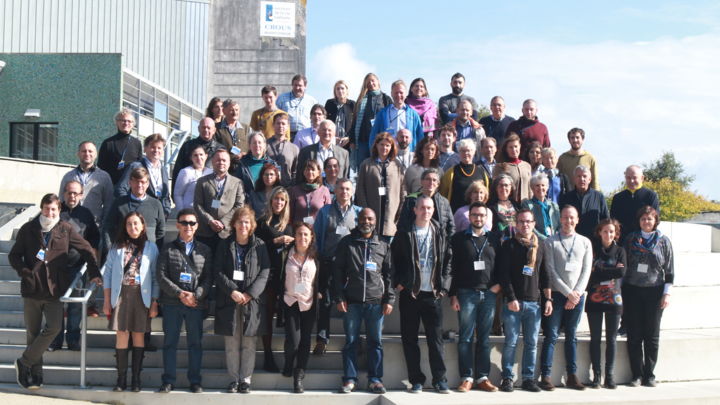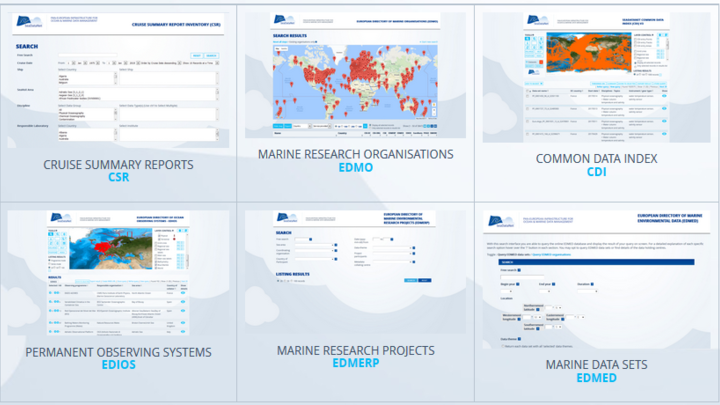DIVA
In practice, in-situ measurements can be sparse and heterogeneously distributed. The DIVA software tool (Data-Interpolating Variational Analysis) allows one to spatially interpolate (or analyse) those observations on a regular grid in an optimal way. The analysis is performed on a finite element grid allowing for a spatial variable resolution and a good representation of the coastline and isobaths. As some areas covered in the European seas have complex coastlines, the finite-element grid of DIVA will be able to adequately resolve those.
It is also possible to compute error maps for the gridded fields which reflect the accuracy of the observations and their distribution. This allows one to assess the reliability of the gridded fields and to objectively identify areas with poor coverage. In an approach similar to the generalized cross-validation, the value of the gridded fields without taking a particular observation into account can also be computed. By comparing this analysed value with the observations, one can establish how consistent one particular observation is with the remaining dataset. This information can be used by the data centres to identify bad data.
The DIVA software can also load the data sets, prepared via the MEDATLAS QC software and other in-house QC systems. The command line interface of DIVA allows for batch processing of large data sets.
Users, planning to perform repeated and advanced analysis including error estimated and quality control on large data sets, can download the stand-alone version of DIVA and install it on a local computer. This is the version used for regional product preparation.
- Download the DIVAnd software for Julia
- The previous Fortran version of DIVA is available here
Data Interpolating Variational Analysis (DIVAnd) is also available in the Virtual Research Environment for producing analysis, generation of netCDF files and visualisation of the result.
For using simple DIVA tools from within ODV, you can download the latest ODV version with DIVA support
DIVA is fit for use on Windows and Unix platforms. Use requires a sufficient background and expertise in mathematics and objective analysis. DIVA has been initiated and is now further developed as part of SeaDataNet by partner ULiège






